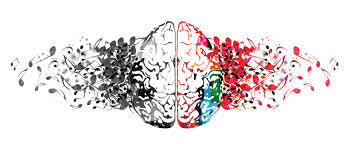
“Music can heal the wounds which medicine cannot touch” – Debasish Mridha.
What comes to mind when you hear the words “music therapy”? Think back to when the music you were engulfed in was so powerful and intense that you experienced a tsunami of full-body chills. Music therapy is crucial for helping patients heal and recover after surgery. While modern medicine has made enormous strides over the years, music has stayed as powerful as always, without needing to change anything (Redding et al., 2016). This blog will focus on music therapy and its influences on pain management after surgery.
What Is Music Therapy?
Music therapy can help everyone (Holden & Holden, 2013). Starting with the basics of MusicTherapy is a term to describe a clinical form of treatment used for patients suffering from both physical and emotional illness or injury (Redding et al., 2016). This therapy uses activities such as singing, writing, listening to music, or playing an instrument to either meet a patient’s recovery goals or help relieve their pain (Redding et al., 2016). For example, music therapy can help patients feel better about their surgery recovery, provide emotional support, and even decrease acute surgical pain (Redding et al., 2016).
Music Therapy Helps Soothe Anxiety and Depression After Surgery
A study nearly 24% of post-surgical patients felt depressed, while almost 40% felt anxious (Redding et al., 2016). This may be due to body dysmorphia, chronic pain, the stress of surgery, medication side effects, financial costs, or feeling guilty about needing to rely on others (Redding et al., 2016). Whatever the reason, music therapy has been depression and anxiety in post-surgical patients (Redding et al., 2016). Listening to, creating, and playing music has been linked to the release of endorphins in our brains (Orri et al., 2015). These endorphins make us feel happy and better about ourselves and our situations (Orri et al., 2015). Through music therapy, our brains become flooded with feelings of euphoria and contentment, despite just having gone through surgery (Orri et al., 2015).
Music Blocks Pain Receptors
Endorphins not only help us feel joyful and satisfied but also play a tremendous role in our physical health. Research has shown that pain relief occurs when music therapy is used. This is because endorphins are released (Holden & Holden, 2013). How does this happen? There has been an increase in Research over recent years to support the idea that music and the endorphins created by music blockpain receptors from sending uncomfortable signals to the rest of our bodies (Holden & Holden, 2013). At the deepest level of the spinal cord, music can disrupt the transmission of pain signals before they even reach the brain (Holden & Holden, 2013). So, the better a song makes you feel, the less pain you experience (Holden & Holden, 2013).
Distracted–Based Therapy Method
What’s another way music helps surgical patients manage their pain post-operation? Distracted – Based Therapy focuses on pleasant subjects that promote peace and balance relating to acute pain management. Music has been shown to activate specific sensory pathways competing for our attention with our pain pathways (Redding et al., 2016). With emotional stimulation and cognitive engagement, it’s no surprise that music often wins this battle (Redding et al., 2016). Psychologist David Bradshaw from the University of Utah’s Pain Research Center has dedicated his life to this idea (Redding et al., 2016). Bradshaw states, “If you’re thinking about something else, then you’re not thinking about your pain.”
Music Changes Our Bodily Functions
Music therapy has been proven to reduce blood pressure, improve our breathing, boost our cardiac output, relax our muscles, and reduce our heart rate (Holden & Holden, 2013). In addition, music has been proven to reduce stress, and the physical body effects follow closely behind (Holden & Holden, 2013). In addition, it can promote an enhanced perception of wellness and increase a patient’s motivation to continue fighting through their pain (Holden & Holden, 2013).
Using Music to Heal and Overcome Pain
Music therapy, the act of playing, listening to, or composing music, has much positive physical, emotional, and mental health (Redding et al., 2016). Therefore, music therapy should be used in every hospital around the globe to help tackle difficult emotions, block painful sensations, change how their bodies operate and distract them from their situation.
References:
Holden, R., & Holden, J. (2013). Music: a better alternative than pain? The British journal of general practice: the journal of the Royal College of General Practitioners, 63(615), 536. https://doi.org/10.3399/bjgp13X673748
Redding, J., Plaugher, S., Cole, J., Crum, J., Ambrosino, C., Hodge, J., Ladd, L., Garvan, C., & Cowan, L. (2016). “Where’s the Music?” Using Music Therapy for Pain Management. Federal practitioner: for the health care professionals of the VA, DoD, and PHS, 33(12), 46–49.
Orri, M., Boleslawski, E., Regimbeau, J. M., Barry, C., Hassler, C., Gregoire, E., Bachellier, P., Scatton, O., Mabrut, J. Y., Adham, M., Vibert, E., Revah-Levy, A., & Farges, O. (2015). Influence of Depression on Recovery After Major Noncardiac Surgery: A Prospective Cohort Study. Annals of surgery, 262(5), 882–890. https://doi.org/10.1097/SLA.0000000000001448

